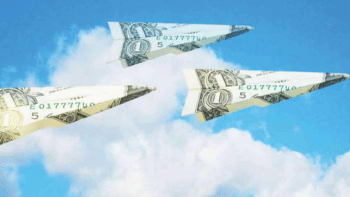Searching our souls for national unity

"Bareer kachhe arshee nagar
shetha porshee boshot kore
Ek ghar porshee boshot kore
Ami ekdino na dekhilam tare."
This epic refrain of Fakir Lalon rings around our collective South Asian conscience every time people of one religious identity inflicts mindless violence on the people of other faiths, like Hindus murdering innocent Muslims in Maharashtra, Buddhists pillaging Rohingya villages in Myanmar or Muslims blowing up Christians in Sri Lanka. The simple fact of life is that ethnically we are all the same or of similar ethnic mix but we hardly know our own people belonging to other faiths, living in our midst. The ethnic similarity between a Christian, a Hindu or a Muslim family in any part of the sub-continent is hidden in plain sight by insurmountable walls of religious intolerance and bigotry. Similar complexion, language, customs and culture of Muslims, Hindus, Christians and agnostics in our region somehow have given way to siloed identities belying the stark homogeneity of the people irrespective of faith. This has frustrated great thinkers and humanists for generations like Lalon, Rabindranath and Nazrul.
Interfaith tolerance is one of the fundamental tenets of Islam and, throughout history, we see numerous examples of Muslim rulers administering the vast majority of non-Muslim subjects with peace, justice and prosperity in the Mediterranean Coasts, the Middle East, the Far East and the Indian sub-continent. However, every time religious intolerance reared its ugly head, the blissful interfaith peace and harmony gave way to wars and social upheavals. While a faith-neutral Mughal Emperor Akbar built a massive empire of untold riches, his last powerful descendant Aurangzeb caused the implosion of that same empire through religious intolerance. As the British East India Company merchants in the eighteenth century gradually crept into the sub-continent by pitting one faith against another, soon the whole of India was under their iron grip. When they finally left, two centuries later, they made sure the religious divide was indelibly imprinted on the map and psyche of the Indian sub-continent. The whole region is still riveted by the anguish of people belonging to multiple faiths vicariously experiencing the murder, rape and pillage of one faith over another time and time again.
In the Hindu-majority India, the current government led by BJP is stoking the flames of Hindutva and trying to discard all the greatness that India achieved under non-Hindu rule. At the same time, in Muslim-majority Pakistan and Bangladesh, the non-Muslims are migrating to India or other greener pastures and thereby gradually reducing the share of non-Muslims as a percentage of the population. Pakistan and Bangladesh may be Muslim-majority countries with some common heritage but the two cannot be more different when it comes to interfaith tolerance. Bangladesh is the land of Bauls—a community of interfaith mystical poets and singers—whose influence in communal harmony is a salient part of our proud heritage. However, political opportunists have used the power structures to take over properties of people belonging to minority faiths. That has not only worked against the full integration of minorities in the mainstream society but also threatened to tarnish the image of the country known for its rich history of communal harmony and amity.
The number of opportunists that prey on people's minority status for illegal and immoral material gains are rising by the day. The leaders in government and civil society have to play a catalytic role to bring all Bangladeshis together, irrespective of their faith, gender, ethnicity and social position. The founder of modern Singapore Lee Kuan Yew's name comes to mind as someone who vigorously promoted the idea of multiple ethnicities but one Singapore, calling out to all citizens to put their best foot forward as a Singaporean first and then embrace their individual ethnic identity. This has worked wonders for Singapore even though more than two-thirds of Singaporeans are ethnic Chinese. Similarly, in Bangladesh, there are Bengalis, Chakmas, Santals, Hindus, Muslims, Qadianis, Christians—different social groups based on ethnicities and religions but all are Bangladeshis—one people, one nation.
Unless we can inculcate this doctrine into our children from very early on, from pre-K and primary education to higher tiers, and treat all people as one nationality, the mainstreaming of minorities cannot happen, and as long as minorities are not made part of the mainstream, they will never feel safe and at one with the rest. Let me end this piece with Nazrul's eternal paean to human equality:
I sing of equality–
There's nothing greater than a human being, nothing nobler!
Caste, creed, religion—there's no difference.
Throughout all ages, all places, we're all a manifestation
Of our common humanity.
Amen.
Habibullah N Karim is an author, policy activist, investor and serial entrepreneur. He is a founder and former president of BASIS and founder/CEO of Technohaven Company Ltd. Email: hnkarim@gmail.com


 For all latest news, follow The Daily Star's Google News channel.
For all latest news, follow The Daily Star's Google News channel. 



Comments